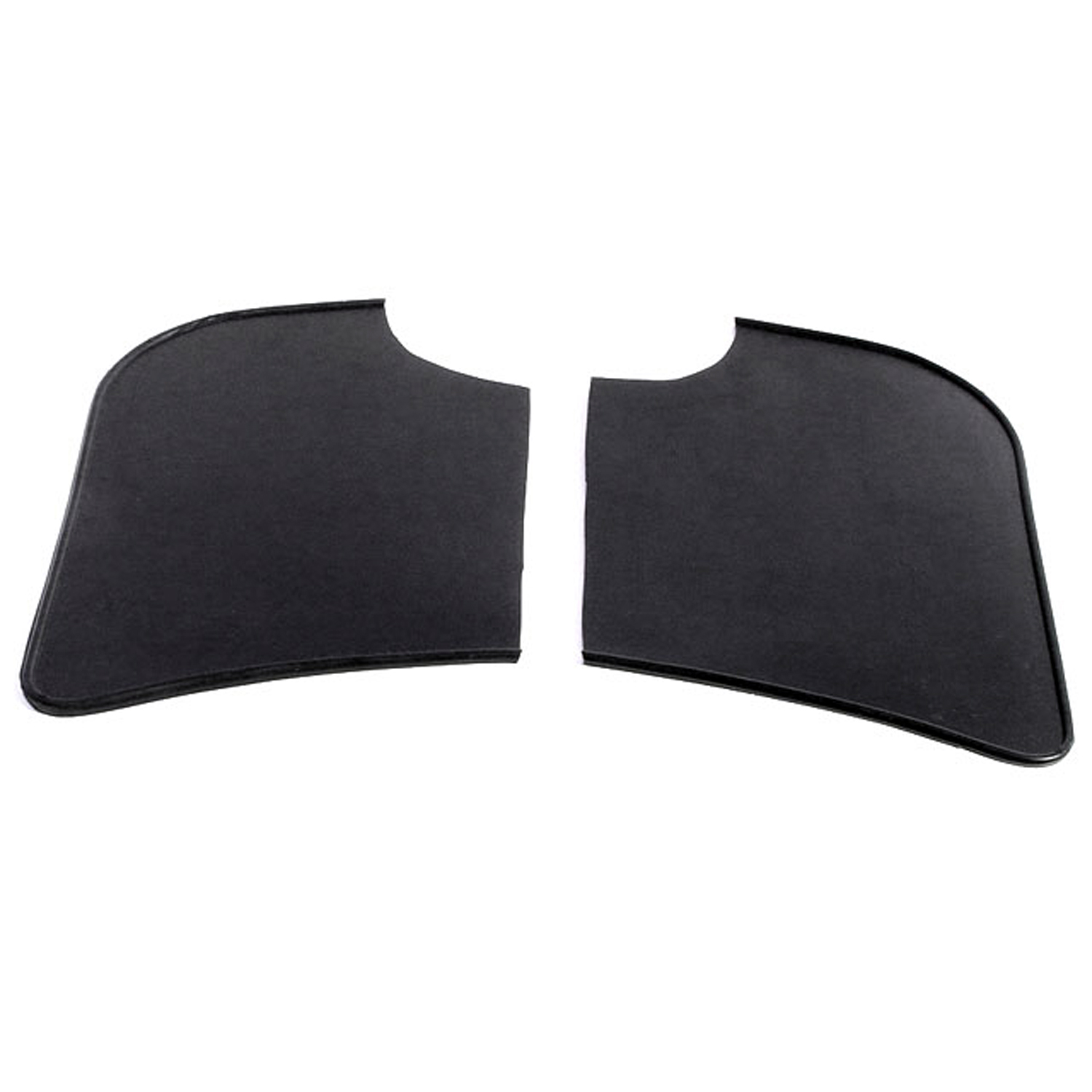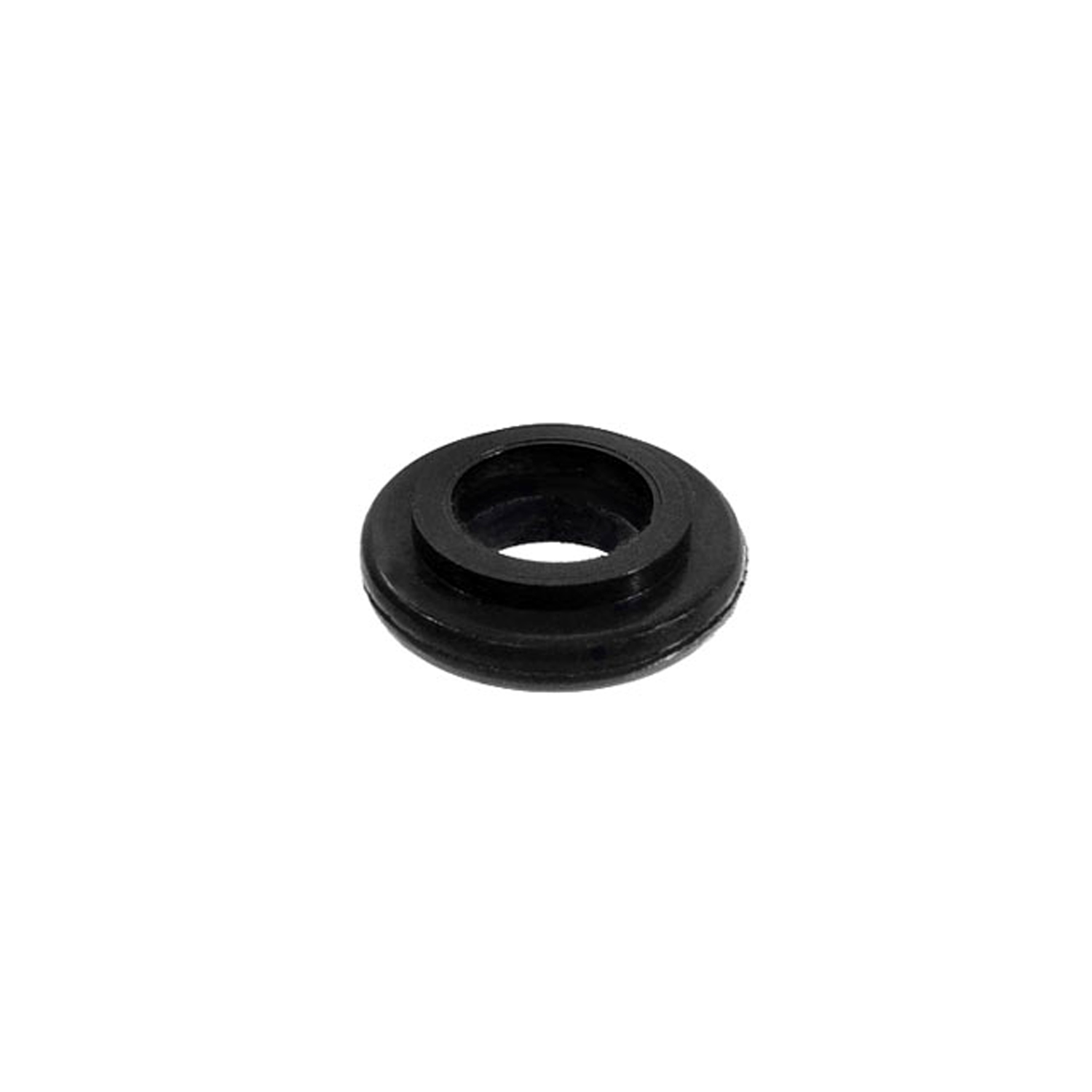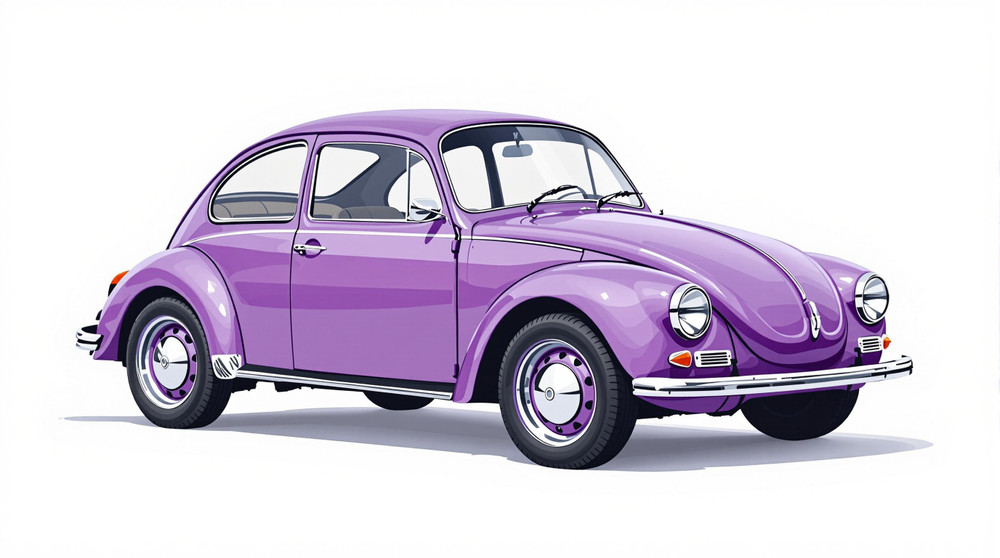Image of 1970 Volkswagen Fastback, Note: These illustrations use artistic license and may differ from actual historical models.
Performance Metrics
Fundamental Metrics
Emotional Appeal
MMP Rating
| Engine Specifications | |
|---|---|
| Engine: | Air-cooled, rear-mounted, flat-four engine |
| Displacement: | 1.6L |
| Horsepower: | 54-65 hp |
| Torque: | 81 lb-ft |
| Compression Ratio: | 7.5:1 |
| Ignition System: | Distributor ignition |
| Cooling System: | Air-cooled |
| Performance Specifications | |
| 0-60 Time: | Estimated 16-18 seconds |
| 1/4 Mile Time: | Estimated 20 seconds |
| Top Speed: | 90 mph |
| Transmission and Drive | |
| Drive Type: | Rear-wheel drive |
| Transmission Type: | 4-speed manual |
| Fuel and Efficiency | |
| Fuel System Type: | Carburetor |
| MPG: | Estimated 25-30 mpg |
| Dimensions and Brakes | |
| Brakes: | Front disc brakes, rear drum brakes |
| Wheelbase: | 94.5 inches |
| Weight: | 2,200 lbs |
Note: Specifications for classic cars are given to the best of our ability, considering the limited and variant data available.
1970 Volkswagen Fastback: A Blend of Practicality and Unconventional Style
The 1970 Volkswagen Fastback stands as a testament to an era when practicality met quirky design, and the result was nothing short of iconic. Born from the workshops of the German automotive giant Volkswagen, the Fastback, or Type 3 as it was officially known, emerged as a more spacious and comfortable alternative to its Beetle sibling. With its distinct aerodynamic shape and rear-engine layout, it carved out a unique niche in automotive history. A notable moment for this vehicle was its innovative use of fuel injection technology in later models, which was quite advanced for its time.
Design and Innovation
The exterior of the 1970 Volkswagen Fastback is immediately recognizable by its sleek lines that flow from front to back, culminating in a subtle yet distinctive notchback rear end. Inside, occupants were greeted with a simple but functional dashboard, supportive seats, and quality materials that stood the test of time. Technologically, the Fastback was ahead of many competitors with features like electronic fuel injection in the later 'E' versions. Color options ranged from vibrant tones to more subdued hues, with colors like Clementine Orange and Chianti Red being popular choices. The most iconic body style was undoubtedly the two-door sedan version, which offered both style and practicality.
Historical Significance
The Volkswagen Fastback's impact on automotive design was subtle yet significant. It offered a blend of economy and comfort that set a new benchmark for family cars. Its rear-engine configuration and advanced features like fuel injection were influential in showing that economy cars didn't have to be basic or underpowered.
Performance and Handling
Performance-wise, the 1970 Fastback wasn't a sports car by any stretch, but it provided adequate power for everyday driving. Top speeds hovered around 90 mph with acceleration from 0-60 mph taking around 15 seconds. Handling was competent for its class, absorbing bumps adequately while remaining stable on windy roads. Drivers often praised the smooth ride quality and the unique sound of its air-cooled engine—a distinctive hum that still resonates with enthusiasts today.
Ownership Experience
The Fastback served many roles from a reliable daily driver to an occasional show car. Its maintenance and reliability were strong points; thanks to its Beetle roots, parts were plentiful and repairs could often be done by the owners themselves. The simplicity of its design made it an excellent choice for those new to classic car ownership.
Fun Facts
This model has had its share of limelight with appearances in films and even celebrity ownerships. While not known for setting speed records, it held its own in terms of sales success and enduring popularity. Some criticisms included limited rear visibility due to its sloping design, but this did little to dampen consumer enthusiasm.
Collector's Information
Today, the value range for a well-preserved 1970 Volkswagen Fastback can vary widely based on condition, originality, and history. While production numbers were not as high as the Beetle's, there were still tens of thousands made—making them relatively rare but not impossible to find. Over time, values have generally appreciated as classic Volkswagens continue to be popular among collectors.
Conclusion
The 1970 Volkswagen Fastback remains an endearing piece of automotive history that offers a unique blend of style, innovation, and practicality. Its legacy lives on among enthusiasts who cherish its distinctive character and straightforward charm.
1970 Volkswagen Fastback Catalog of Parts
 1970 Volkswagen Fastback Gravel Shields. Molded flat without metal backing plates-FS 40Gravel Shields. Molded flat without metal backing plates. Apply with contact cement. 7-5/8" long X 5-5/8" wide at top. Pair
1970 Volkswagen Fastback Gravel Shields. Molded flat without metal backing plates-FS 40Gravel Shields. Molded flat without metal backing plates. Apply with contact cement. 7-5/8" long X 5-5/8" wide at top. Pair 1970 Volkswagen Fastback Oil Cooler Seal. 7/16" I.D., 7/8" O.D. Each-RP 8-BOil Cooler Seal. 7/16" I.D., 7/8" O.D. Each
1970 Volkswagen Fastback Oil Cooler Seal. 7/16" I.D., 7/8" O.D. Each-RP 8-BOil Cooler Seal. 7/16" I.D., 7/8" O.D. EachWhy Choose Metro?
For over 100 years, Metro Moulded Parts has been the pinnacle of quality in classic car restoration parts. Our commitment to precision and authenticity in every component ensures a perfect fit and an OEM-level appearance.
- Expert Craftsmanship & Quality: Each part is a testament to our dedication to reliability and perfection, crafted from original designs and thoroughly tested.
- Advanced Technology: We use cutting-edge techniques to create flawless, long-lasting parts that surpass others in performance.
- SuperSoft Sponge – The Ultimate Door Seal: Not only are our door seals 30% softer than competitors', but they're also guaranteed to never leak. They effectively reduce wind and road noise, enhancing your classic car's comfort and driving experience.
- Proudly American: Our parts are a product of American craftsmanship, made in the USA with a spirit of excellence and heritage.
- Unrivaled Warranty: We back our products with a 30-year industry-leading warranty, a testament to our confidence in their quality.
Join us in preserving the legacy of classic cars with parts that are crafted for perfection, not just made.

